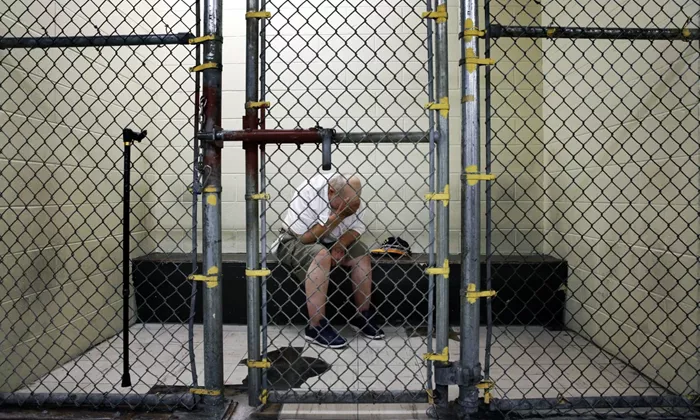A groundbreaking national survey, published on April 9, 2025, has revealed alarming disparities in the prevalence of mental health conditions between incarcerated individuals, those with recent criminal justice involvement, and the general public. The study, led by Jeffrey Swanson of Duke University School of Medicine, sheds light on the urgent need for mental health reform within the U.S. criminal justice system.
Swanson and his colleagues conducted an in-depth survey to examine the psychiatric and demographic characteristics of justice-involved adults compared to those with no recent criminal legal history. The results, drawn from a diverse sample including households, prisons, hospitals, and homeless shelters, show starkly higher rates of mental illness among people incarcerated or recently involved with the criminal justice system.
The survey, which took place between October 2020 and October 2022, included 321 currently incarcerated adults, 269 individuals with recent criminal justice involvement, and 5,004 community members without any recent criminal history. Clinicians with advanced mental health qualifications conducted semi-structured clinical interviews to assess the mental health of participants.
The findings revealed that approximately 40 percent of justice-involved individuals met diagnostic criteria for at least one of five key mental health conditions: schizophrenia-spectrum disorder, bipolar disorder, obsessive-compulsive disorder, major depression, generalized anxiety disorder, and post-traumatic stress disorder. The prevalence of these disorders was notably higher among those who were currently incarcerated (42 percent) compared to those with recent criminal justice involvement (37 percent) and those with no criminal justice history (24 percent).
The study also examined the demographic makeup of these groups. Men comprised the majority in both the incarcerated (93 percent) and recently justice-involved groups (70 percent), whereas they represented only 48 percent of the general population. Additionally, a significant proportion of participants from both the incarcerated (34 percent) and justice-involved (44 percent) groups identified as Hispanic/Latino.
While the study provides valuable insights into the mental health of justice-involved individuals, the authors caution that the results may not fully represent the broader U.S. population. They also acknowledge limitations related to the self-reporting nature of the survey, particularly in assessing criminal justice involvement among those not currently incarcerated.
Despite these limitations, the study underscores the critical need for targeted mental health care and support for individuals within the criminal justice system. Swanson, who is also affiliated with the Wilson Center for Science and Justice at Duke Law School, stressed the significance of the findings. “We found that schizophrenia-spectrum disorders were at least three times more common in prison than in people who hadn’t been arrested or incarcerated in the past year,” he said. “Prison is no place to recover from such a serious illness.”
The study advocates for more effective mental health interventions, emphasizing that addressing the mental health crisis within the U.S. prison system is key to reducing mass incarceration and providing better support for individuals in crisis.
Related topics:
Transcendental Meditation Slows Aging and Reduces Stress, Study Finds
Hearing Issues Linked to Reading Struggles and Mental Health
Loneliness Linked to Early Mortality in Middle-Aged Women

